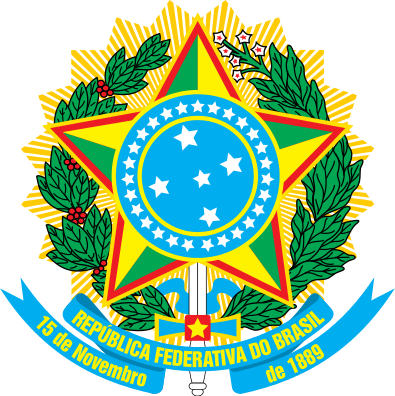Location
Following more than three centuries under Portuguese rule, Brazil gained its independence in 1822, maintaining a monarchical system of government until the abolition of slavery in 1888 and the subsequent proclamation of a republic by the military in 1889. Brazilian coffee exporters politically dominated the country until populist leader Getulio VARGAS rose to power in 1930. By far the largest and most populous country in South America, Brazil underwent more than a half century of populist and military government until 1985, when the military regime peacefully ceded power to civilian rulers. Brazil continues to pursue industrial and agricultural growth and development of its interior. Having successfully weathered a period of global financial difficulty in the late 20th century, Brazil was seen as one of the world’s strongest emerging markets and a contributor to global growth. The awarding of the 2014 FIFA World Cup and 2016 Summer Olympic Games, the first ever to be held in South America, was seen as symbolic of the country’s rise. However, since about 2013, Brazil has been plagued by a shrinking economy, growing unemployment, and rising inflation. Political scandal resulted in the impeachment of President Dilma ROUSSEFF in May 2016, a conviction that was upheld by the Senate in August 2016; her vice president, Michel TEMER, will serve as president until 2018, completing her second term.
Brazil is a federal presidential republic.
Source: CIA World Factbook
Members:
Resources
Displaying 141 - 145 of 180Decree of 2 June 2004 instituting the National Forest of Restinga de Cabedelo, in the State of Paraíba.
This Decree, composed of 4 articles, institutes the National Forest of Restinga de Cabedelo, in the Municipality of Cabedelo, Paraíba State. The Decree establishes that the afore said Natural Park shall be administered by the Brazilian Institute of Environment and Renewable Natural Resources (IBAMA).
Decree of 26 April 2004 declaring of social interest, for the purposes of the agrarian reform, some rural properties in the State of Sergipe.
This Decree, composed of 4 articles, declares of social interest, for the purposes of the agrarian reform, the following rural properties: Fazenda Canudos; Fazenda Montes Claros; Fazenda Santa Isabel; Fazenda Poço do Capim. The Decree establishes the competence of the National Institute for the Agriculture Reform (INCRA) to promote and supervise the expropriation of the aforementioned rural lands.
Implements: Act No. 8.629 regulating rural land property in compliance with the Agrarian Reform. (2017-07-11)
Decree of 19 May 2004 declaring of social interest, for the purposes of the agrarian reform, the property "Fazenda Santa Helena" in Minas Gerais State.
This Decree, composed of 4 articles, declares of social interest, for the purposes of the agrarian reform, the property "Fazenda Santa Helena", located in the Municipality of Rio Branco in the State Minas Gerais. The Decree establishes the competence of the National Institute for the Agriculture Reform (INCRA) to promote and supervise the expropriation of the aforementioned rural lands.
Implements: Act No. 8.629 regulating rural land property in compliance with the Agrarian Reform. (2017-07-11)
Decree of 10 February 2004 declaring of social interest, for the purposes of the agrarian reform, some properties in the States of Ceará and Piauí.
This Decree, composed of 4 articles, declares of social interest, for the purposes of the agrarian reform, the following rural properties: Fazenda Santa Clara e Paraguaciúma; Fazenda Poço da Pedra; Paraíso e Gameleira. The Decree establishes the competence of the National Institute for the Agriculture Reform (INCRA) to promote and supervise the expropriation of the aforementioned rural lands.
Implements: Act No. 8.629 regulating rural land property in compliance with the Agrarian Reform. (2017-07-11)
Decree of 19 May 2004 declaring of social interest, for the purposes of the agrarian reform, some properties in the States of Goiás, Mato Grosso do Sul, Pernambuco, Rio Grande do Norte, Santa Catarina.
This Decree, composed of 4 articles, declares of social interest, for the purposes of the agrarian reform, the following rural properties: Fazendas Alagamar, Vale do Paranã e Lagoa Grande; Fazenda Fundos ou Fundão; Fazenda Laço de Ouro; Fazenda Laginha; Caiçara ou Caiçara Velha; Engenhos Crauassu e Amazonas; Fazenda São João; Fazenda Campina do Mimoso II. The Decree establishes the competence of the National Institute for the Agriculture Reform (INCRA) to promote and supervise the expropriation of the aforementioned rural lands.


